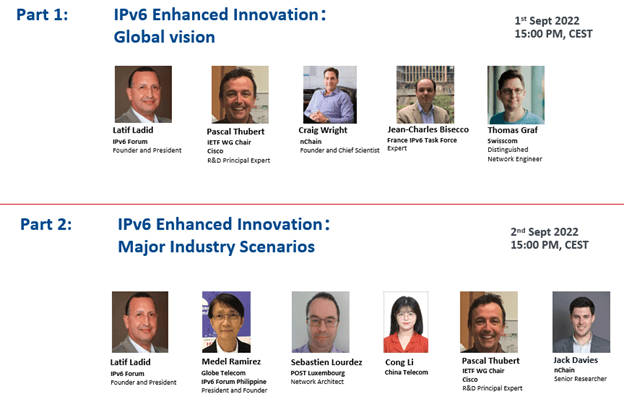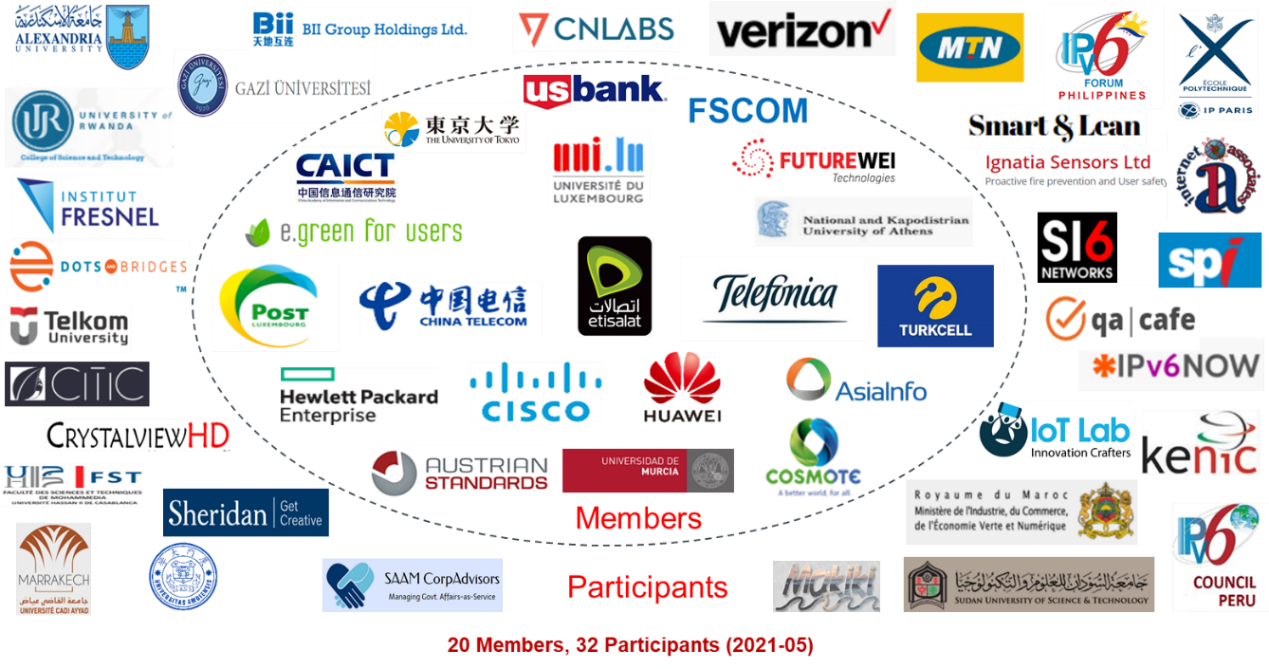ETSI IPv6 Enhanced innovation webinars: Global vision and Major industry scenarios
2022-09-12 Posted by Latif Ladid, Chair of ISG IPE 6078 Hits2 ETSI webinars ‘IPv6 Enhanced Innovation Global Vision’ and ‘Major Industry Scenarios’ took place on September 1st and 2nd respectively. Experts from government institutions, operators, manufacturers and research institutes, shared their vision and the progress made to date within ETSI ISG (Industry Specification Group) IPE (IPv6 Enhanced innovation).

See Webinar Part 1 and Webinar Part 2.

